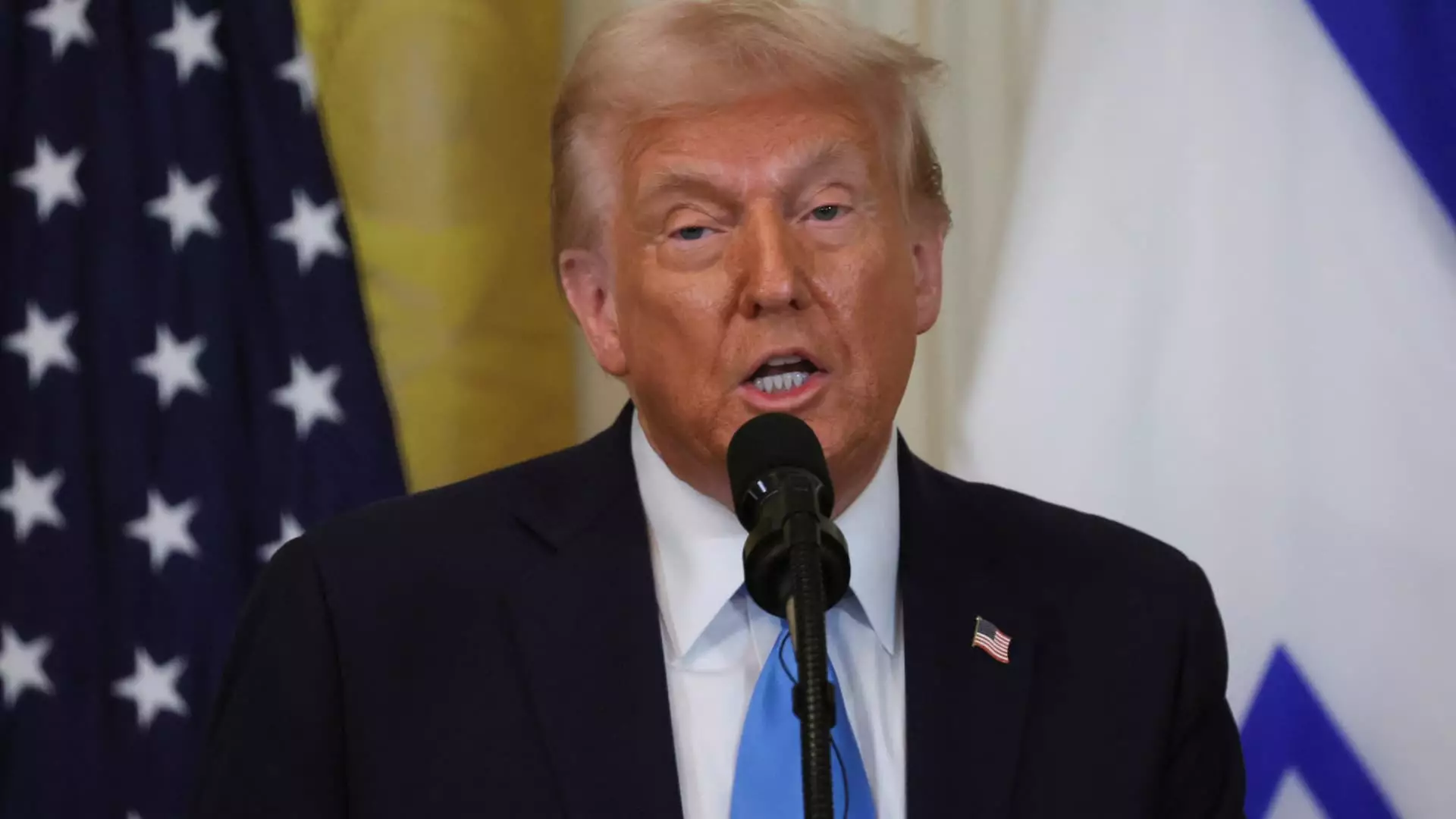The political landscape is often marked by audacious proclamations and contentious plans, and recent statements from former President Donald Trump regarding the Gaza Strip have reignited intense discussions about international affairs and humanitarian crises. After a joint press conference with Israeli Prime Minister Benjamin Netanyahu, Trump suggested a radical approach to address the situation in Gaza, proclaiming, “the United States will take over the Gaza Strip, and we’ll own it.” This bold assertion raises significant questions about sovereignty, ethics, and international relations in a volatile region.
Gaza’s turmoil has deep roots and complex layers that transcended the brief statements made by Trump. Following the devastating conflict that escalated in October 2023, Gaza has descended into a dire humanitarian crisis, exacerbated by decades of political strife and recurring violence. With around two million residents suffering amidst destroyed infrastructure and ongoing military skirmishes, the plight of the Palestinian people cannot be reduced to sound bites or simplistic solutions.
Trump’s proposal that Palestinians should vacate Gaza for resettlement in neighboring countries such as Jordan and Egypt further complicates an already precarious situation. Suggesting that nations should accept vast numbers of refugees ignores the reality of inter-state relations and the intricate bonds formed by population demographics and historical legacies. While Trump envisions a transformed Gaza, indicating a potential rebirth as “the Riviera of the Middle East,” such ideas lack an understanding of the region’s sociopolitical complexities.
Trump’s assertions can be viewed as both innovative and insensitive. On one hand, the former president’s claims about developing Gaza reflect a vision that could theoretically lead to economic revitalization and improved living conditions. Trump emphasized that U.S. involvement would include dismantling the debris of war and establishing new housing and jobs—a sound proposal if considered within a humanitarian context.
However, the insensitivity lies in the manner and phrasing he employed. Statements like “Gaza is a hellhole,” simplify a multi-faceted crisis and reduce a population suffering from trauma and loss to a mere political problem. Such rhetoric can perpetuate stereotypes and potentially foment further discord, stripping individuals of their identities and experiences. The call to “do something different” implies a novelty that could inadvertently dismiss long-standing struggles faced by Palestinians.
Trump’s speculative approach mirrors past suggestions he made regarding territorial acquisitions and geopolitical maneuvers—such as pursuing ownership of Greenland or integrating Canada as a state—which speak to a philosophy that prioritizes opportunistic solutions over collaborative diplomacy. The governing complexities of Gaza, however, require an engagement that transcends territorial ambitions.
International reactions to Trump’s statements have been mixed, revealing a spectrum of viewpoints among political leaders and humanitarian organizations. Netanyahu’s agreement that this proposal could “change history” highlights the potential for emerging alliances but also raises deliberations around ethical governance and long-term resolutions.
Moreover, as negotiations regarding a ceasefire continue, the focus ought to remain on the immediate needs of those affected in Gaza rather than potential U.S. control. The peace process, already fraught with complications, necessitates a nuanced understanding of the diverse perspectives involved—namely those of the Palestinian people, the Israeli state, and the larger Arab world.
The conversation about Gaza must evolve beyond radical declarations and galvanize a collective commitment to humanitarian principles. While proposals for development are vital, they must prioritize the dignity and rights of Gazan civilians. Any solution aimed at addressing the conflict should engage directly with the voices of those most affected, ensuring that plans are rooted in compassion rather than dominance.
Trump’s proposed takeover of Gaza serves as a stark reminder of the delicate interplay between power, politics, and human welfare. True progress will hinge not only on strategic interests but on fostering dialogues that acknowledge the complexities of cultural, historical, and political narratives.

